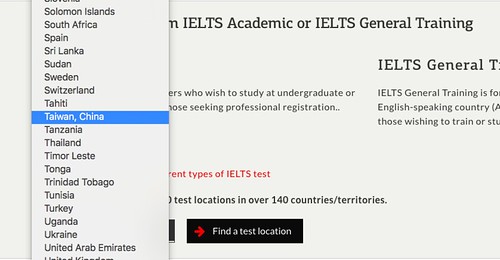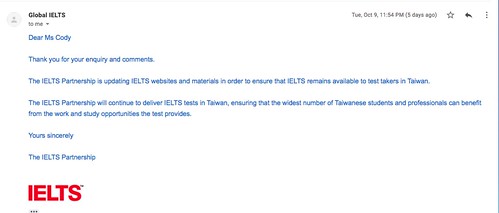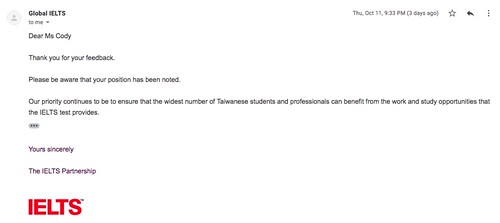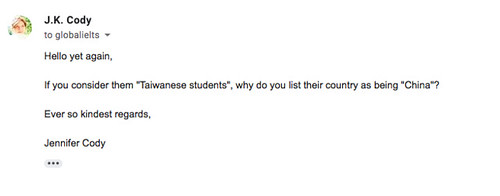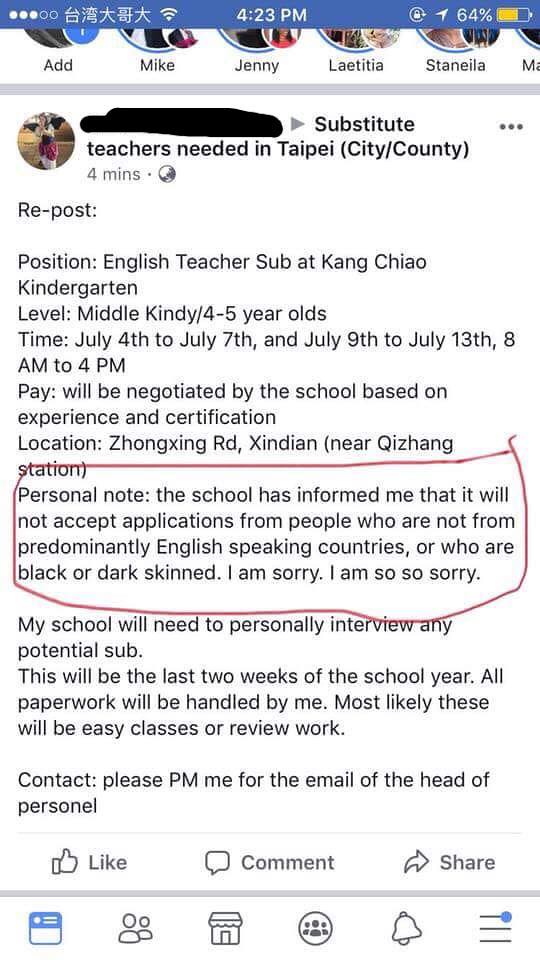Just a quick thought at the end of Lunar New Year that struck me as I chatted about my life in Taiwan with a friendly British couple on the beach. Links to come later as I can't easily add them on an iPad.
They asked me if dual nationality in Taiwan was even possible, or if I would have to give up my original nationality to get it. I told them sincerely I was happy that recent changes to the immigration laws in Taiwan created a pathway, but dismayed that the path was entirely too narrow and impossible - as an educator, I'd have to be a university professor (assistant or associate - I forget which because that's so far off for me that it doesn't matter yet.) I mentioned that I have friends at prestigious institutions like Academia Sinica who have been told that this is interpreted (incorrectly) to mean "when you have tenure", so they won't even write the necessary letters for their academics until that happens.
"Imagine," I said, "having to get tenure at Academia Sinica before you even qualified as an educator!"
It was the same thing I'd told Legislator Karen Yu just a few weeks ago.
My husband joined in, "It seems like a rule that was put in place with very little thought - like some people in a room just decided that sounded good, but which has a huge effect on people's lives that the folks in that room are totally unaware of."
And I've come to realize, as those whole "bilingual country" and "English as a second official language" talk starts slowly creaking its wheels towards actual action, that if the government is serious about it, that immigration laws, especially for educators, simply need to be loosened. Now.
The usual pushback to people upset that they don't qualify for dual nationality in Taiwan (like me!) is "this is the set of talents/skills that the government has decided it needs, that's why it's comparatively for someone in STEM to jump through the hoops, but difficult for teachers. They want STEM workers but don't need so many teachers. Deal with it!"
This is of course nonsense, though I do acquiesce that this is what the government *thinks* are the skills it needs to attract to Taiwan. What's horseshit is the notion that Taiwan actually needs more talented foreign STEM professionals. Taiwan has reams and reams of local STEM talent, the best of whom are leaving Taiwan due to low pay and poor working conditions. (and even so, if anything there's a surplus of engineers and IT professionals. Perhaps pay would go up if they were more scarce.) Foreigners aren't going to take those jobs in any great number because the jobs aren't very good; what it needs is to provide attractive enough opportunities to get its own talent to stay, and perhaps some foreigners as well. Taiwan is not a developing country; what it would take to satisfy top Taiwanese talent is not far off from what it would take to attract foreigners. Expectations don't differ that much.
But what Taiwan actually does need - or will need in the coming years - is talented educators. It's true that there is a surplus of not-very-well-trained "English teachers". While I support a way forward for them in the field that involves better apprenticeship and training than what is on offer now, they are not the ones I mean. We have a lot of those (too many, in fact) and not enough trained and experienced foreign educators - whether you have a teaching license, a Delta or a postgraduate degree. Among those who are here, a disproportionate amount are English teachers or non-specialized teachers of young learners; teachers who specialize in other subjects are harder to come by. We have even fewer experienced language teacher trainers - and I don't just mean among foreigners. There aren't that many options for teacher training in English among locals either.
The government seems to have realized this - the talk at the meeting before Lunar New Year focused at times on this need. But they don't seem to have realized that if that is the talent Taiwan must attract, then one of the best ways to get those already here to stay and attract new professionals is to make it easier not just to move here, but to stay. That is, to further amend immigration laws so that teachers who want to build a career here have a hope of staying on as citizens, someday, if they wish.
If we're going to really go ahead with a "globally oriented Taiwan" - that is, a country where English is integrated culturally to a degree that eases the road to greater internationalization, which is the actual goal - Taiwan is going to need more than a handful of professors who currently qualify.
They are going to need teacher trainers (you know, like me). Not just to train up foreign teachers, but locals as well (which is what I focus on). No country actually achieves the level of 'bilingualism' that the government says it aspires to with foreign teachers alone: you'll notice that English medium teachers in countries like Singapore, India, Hong Kong (I'm calling it a country and don't care what you think) and the Philippines are overwhelmingly local. They're going to need advisors, translators, editors and tutors. They are going to need English proficiency test examiners (even though tests like IELTS suck for political reasons and you should not take them if you can avoid it.)
And yes, they're going to need just regular teachers. Not just English teachers; if Tainan is any indication, this push is going to go hand-in-hand with a bilingual education model, where regular subjects are taught in English. This model isn't particularly common in Taiwan, although schools with multilingual curricula exist; educators who are familiar with it will be needed, and a number of them will be foreign. Teacher training programs and certification courses will hopefully become more readily available in Taiwan - I have high hopes for international standard pre-service certifications, including those run by Cambridge and Trinity. But those require trainers, and to get to a point where locals can do those jobs (as such training does not currently exist in Taiwan), we'll need foreign teacher trainers.
So, it makes absolutely no sense, from this moment forward, for the government to imply through its immigration law that it does need foreign engineers but it doesn't need teachers. It makes no sense to set the bar for educators so ridiculously high that almost no-one meets it, and to predicate it on a job some valuable educators may not even want.
Personally, while I think I'd be a fine academic, I find a lot of meaning in teacher training, especially training up non-native speaker teachers. This is a real contribution to Taiwan - but to become yet another university professor teaching the same old academic writing and speaking classes? That is also meaningful, but we have a lot of them already. Are more of those what Taiwan really needs, at a time when it will be gearing up to train a bunch of new teachers in modern methods that are not currently common here?
Many of us are already here, and have made Taiwan our home. We want to stay and contribute, and one of the best ways the government can ensure that we do is to make it feasible for educators to gain dual nationality. Taiwan is a fine place to live as well; surely some newcomers will want to stay.
It's time for Taiwan to truly open the door to them, and amend its immigration policy to reflect the talent it says it needs.


